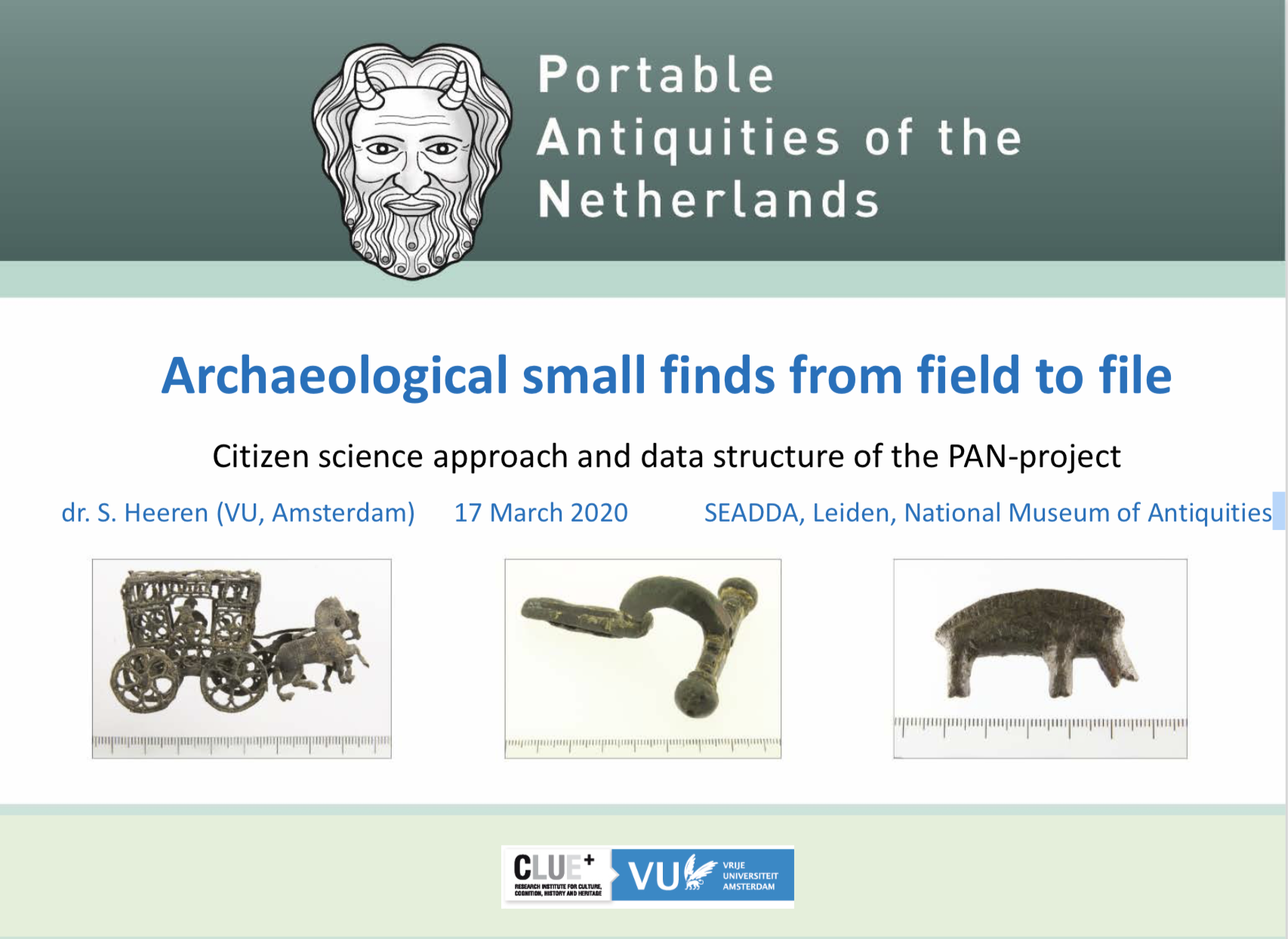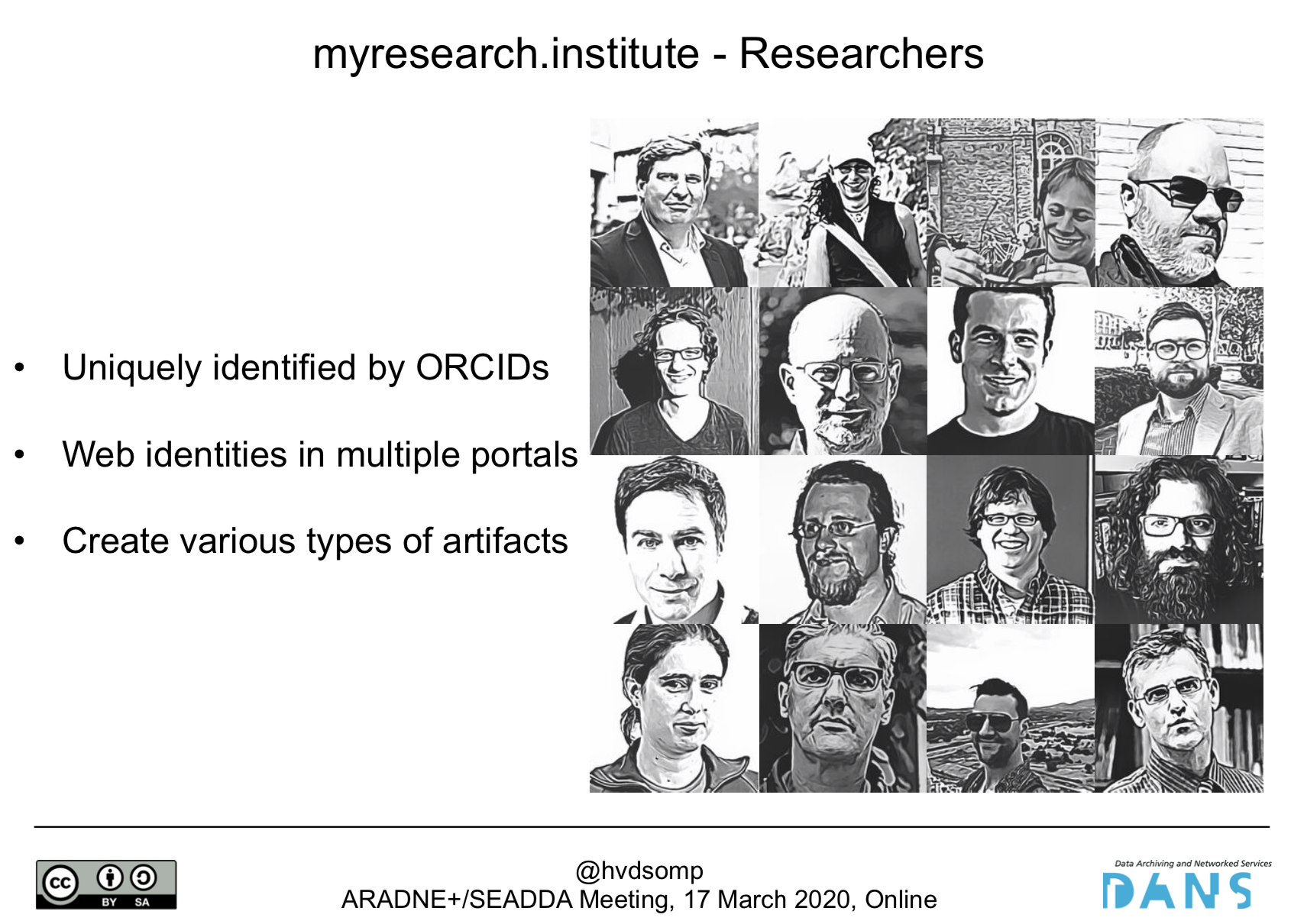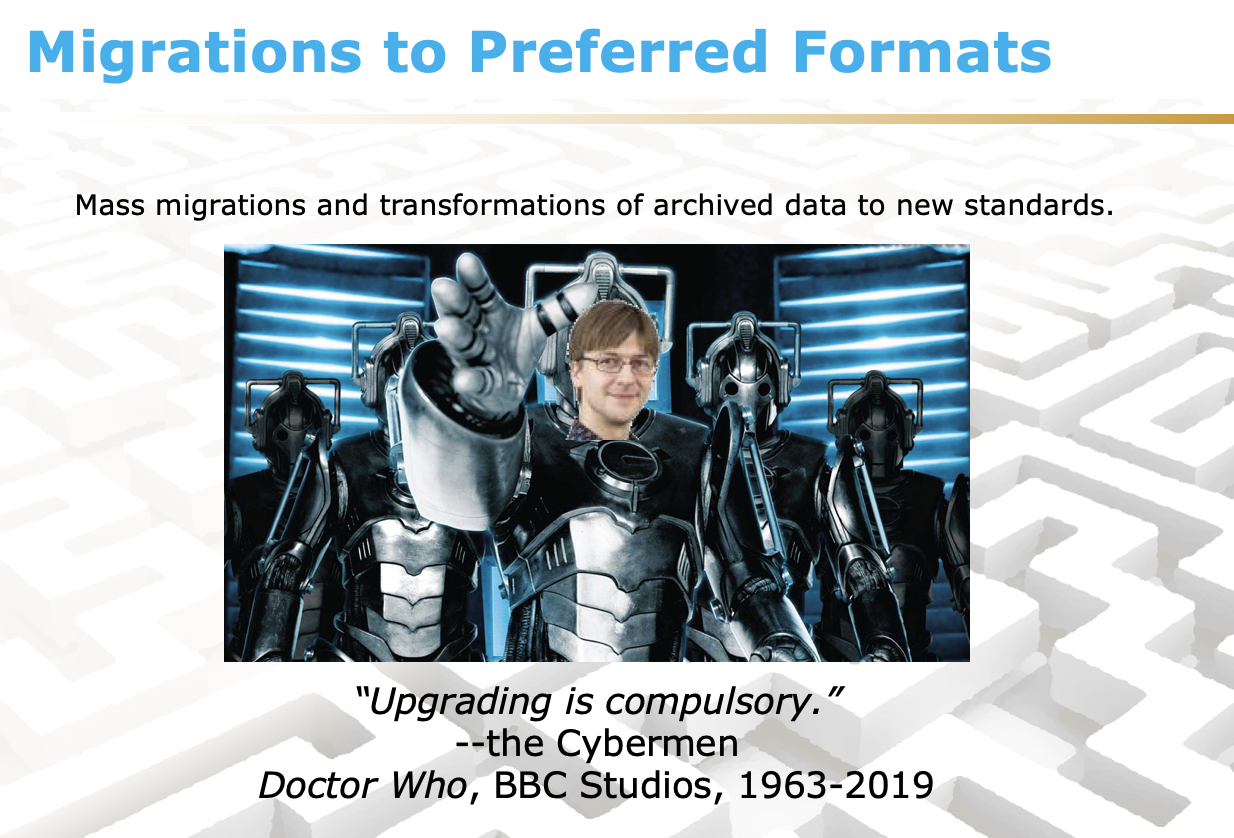The DANS team originally organized a three-day event for mid-March that combined a series of presentations on important best practice issues for FAIR Data Management, with a site visit at the National Museum of Antiquities and the Bibliotheca Thysiana (in Leiden), as well as workshops on ‘FAIR data management’ and ‘Trust Concepts and Standards’. The event was envisioned as a combined ARIADNEplus and SEADDA meeting, to give participants the opportunity to interact across both networks. However, due to the COVID-19 safety restrictions on organizing meetings in The Netherlands, the face-to-face event had to be restructured as a one-day virtual meeting which consisted of a series of lectures in the morning and a SEADDA WG3 meeting. Unfortunately, the workshops on FAIR Data Management and Trust Concepts and Standards had to be cancelled because of their interactive nature. The virtual session took place on Tuesday 17 March using GoToMeeting and, despite the unfortunate circumstances, was a great success. A total of 42 participants joined the sessions, although not all of them were there for the entire meeting.
The FAIR Data Management workshop programme consisted of three one-hour lectures as follows:
- Herbert Van de Sompel kicked the meeting off with his lecture on An Institutional Perspective to Rescue Scholarly Orphans. In the Scholarly Orphans project, funded by the Andrew W. Mellon Foundation, the team looked into archiving artifacts (presentations, code, data, etc.) that researchers deposit in various web platforms (GitHub, Slideshare, Zenodo, personal websites, etc.), but that go unnoticed by their institutions.
- The second speaker, Valentijn Gilissen, gave a presentation entitled Preferred Formats = Pre-FAIRed formats where he explained the reasoning behind DANS’s preferred formats policy and demonstrated how such a policy contributes to producing FAIR data. In short, DANS considers that the file formats best suited for long-time preservation and accessibility are file formats which are commonly used, have open specifications, and are independent of specific software, developers or suppliers.
- Last but not least, Stijn Heeren presented the Portable Antiquities of the Netherlands (PAN) project in his lecture Archaeological small finds from field to file: Citizen science approach and data structure of the PAN-project. Stijn emphasized the role of private finders contributing to the project. In addition, he discussed the PAN portal and the data model behind the description of the findings in detail, and how this approach leads to publishing data that is FAIR .
The presentations along with session notes, will also be made available on the Training Hub.



